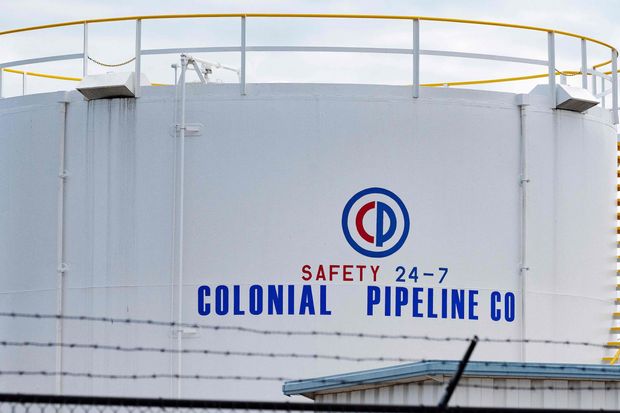An Overview of the Ransomware Attack on the Colonial Pipeline
An image depicting the Colonial Pipeline, known as the victim of a cyber attack.
May 13, 2021
As a result of a ransomware attack, a major U.S pipeline by the name of Colonial Pipeline was shut down while transporting fuel across the East Coast last week. Though the attack led to a shutdown, officials said that it was unlikely to affect any gasoline supply and prices unless the shutdown was prolonged.
The company delivers roughly 45 percent of the fuel consumed on the East Coast, therefore the shutdown was temporarily a large issue for anyone awaiting a delivery from the pipeline. The ransomware attack affected many of the technology systems in the pipeline that had vital information in them. Colonial Pipeline had to move quickly in order to pull some of their systems offline, in order to avoid leaks of anything of utmost importance.
As of May 12th, 2021, Colonial Pipeline was still down and many were feeling the effects of it. The average national price of gas is $2.985 and has spiked to about $3 per gallon. The demand for gas jumped 20% on Monday compared to last week, according to GasBuddy, a resource for finding gas stations.
Andy Lipow, an oil analyst said that the impact of the attack on fuel supplies and prices depends on how long the pipeline is down. Shipments of 2.5 million barrels per day have been paused, from the U.S. Gulf Coast oil refineries to consumers in Mid-Atlantic and Southeast states according to REUTERS, a multimedia news provider.
The shutdown has begun to affect different states in the U.S. Michigan has requested for a Canadian company to shut down their oil and gas pipeline by Wednesday, May 12th. Growing fears continue as a spill is threatened from the pipeline in the entire region, continuing to strain relations between Canada and the United States.
“These oil pipelines in the Straits of Mackinac are a ticking timebomb, and their continued presence violates the public trust and poses a grave threat to Michigan’s environment and economy,” said Michigan Governor, Gretchen Whitmer in a statement about the pipeline.
Virginia Governor Ralph Northman issued a state of emergency on Tuesday, May 11th in response to the Colonial Pipeline shutdown. According to Northam, the gasoline reserves in Virginia are enough to address immediate supply concerns but acknowledged that the pipeline closure will cause gasoline disruptions to several retailers across Virginia and the East Coast.
North Carolina Governor Roy Cooper has also declared a state of emergency, along with Georgia Governor Brian Kemp signing an executive order to suspend all of the state’s gas tax to assist drivers in coping with the consequences of the pipeline’s shutdown. 28% of North Carolina’s fuel stations have reported gasoline shortages.
As of now, Colonial Pipeline had resumed gas pipeline operations and is working on returning to producing gasoline as it did before. Approximately 41 million gallons of gas has been delivered to various delivery points such as; Atlanta, Ga., Belton and Spartanburg, S.C., Charlotte and Greensboro, N.C., Baltimore, Md., and Woodbury and Linden N.J, according to the official Colonial Pipeline website.

